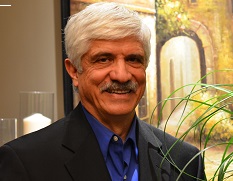Taking Coal to the Cleaners
A new process for producing bio-coal reduces both carbon emissions and wood waste
Dr. Shahab Sokhansanj, Biomass and Bioenergy Research Group (UBC)

Coal is responsible for a third of the world’s carbon dioxide emissions but coal is making a comeback with a decidedly cleaner look. Bio-coal, coal’s close cousin, holds great promise as an eco-friendly replacement for a variety of industry and home heating purposes. To prove the point, researchers at the University of British Columbia (UBC) have teamed up with a Vancouver-based Global Bio-Coal Energy (GBCE). The result is a new pro- cess for producing high-quality bio-coal from wastes and residues from sawmills and forest harvesting operations.
BBRG (Biomass and Bioenergy Research Group) at UBC, has developed a torrefaction process where the biomass is subjected to conditions of extreme heat and low oxygen. The process conserves more than 85 percent of the dry weight of the original biomass, while enriching most of the carbon and boosting its energy value. What does this all mean? A bio-coal product with energy properties similar to those of traditional coal, but with one big difference: It’s carbon neutral. “The product is odour-free, moisture-proof, highly hydrophobic, contains very few undesirable pollutants and releases dramatically lower emissions during storage,” says Professor Shahab Sokhansanj, the BBRG’s lead researcher. BBRG engineers have also shown their process to cut energy costs by 20 percent compared with conventional bio-coal production methods. GBCE, together with major investors, is setting up its first commercial plant on watson Island, British Columbia. Set to go into full production in early 2015, the facility expects to generate 200,000 tonnes of bio-coal per year for markets in North America, Europe and Asia.
Looking forward, the team will continue to improve the quality of the bio- coal product to make it suitable for a range of applications including in the steel industry.
Contributing Researchers:
Tony Bi, Bahman Ghiasi, Chang Soo Kim, Linoj Kumar, Jim Lim, Staffan Melin, Shahab Sokhansanj, Anthony Turhollow and Fahimeh Yazdanpanah.
